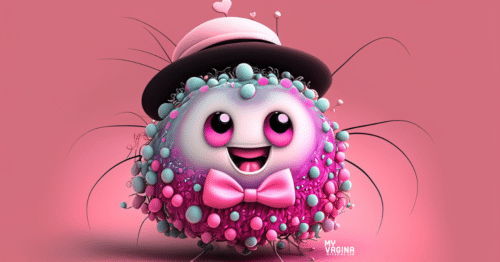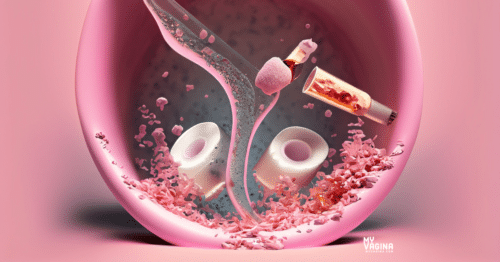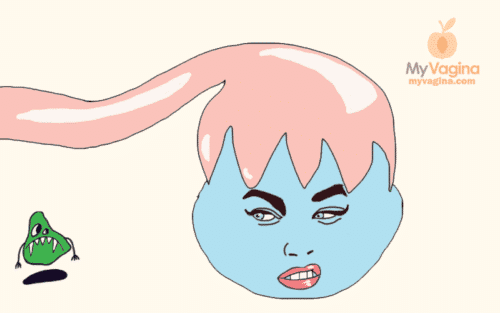Several common vaginal infections affect millions of women all over the world every day, with bacterial vaginosis (BV) and yeast infections being the most frequent. But, don’t forget aerobic vaginitis (AV) and urinary tract infections (UTIs)!
Why does my vagina smell bad?
Bacterial vaginosis (BV) occurs when the balance of bacteria in the vagina is disrupted, leading to an overgrowth of disruptive bacteria.
Symptoms of BV can include a thin, greyish discharge with a fishy odour, particularly noticeable after sex and your period. But, some people experience no symptoms at all.
Aerobic vaginitis (AV) can also cause a foul odour, but it’s different to BV. See your doctor and get tested, or do an at-home comprehensive vaginal microbiome test. Send us the results and we’ll help you! Free!
Why is my vagina itchy?
Yeast infections, caused by an overgrowth of the fungus Candida albicans and related species, are another common issue, which may be recurrent.
Yeast infections can lead to symptoms like intense itching, burning, swelling, and a thick, white discharge that resembles cottage cheese. But, it usually doesn’t smell bad.
Yeast infections can be triggered by hormonal changes, antibiotic use, diet changes, or wearing moisture-trapping clothing or a wet bathing suit.
Do I have an STI?
Sexually transmitted infections are common – is it chlaymdia, trich, gonorrhoea, HPV, and herpes. HIV and syphilis are also unfortunately on the rise in women.
STIs need to be tested for and treated, so see your doctor for the best testing or find an at-home provider who does STI testing.
Getting help with infections
Here you’ll find what you need to know about how to treat issues effectively and what your options are, with lots of effective non-drug treatments for the most common issues, shipped internationally – free. And, we help you – free!
See an experienced naturopath and get a fresh perspective
We also provide access to the world’s very best vulvovaginal specialist naturopaths, who work 100% holistically, anywhere in the world via telehealth.
Get the care you need, with drug-free natural treatments that work. We ship free globally. Book today.













